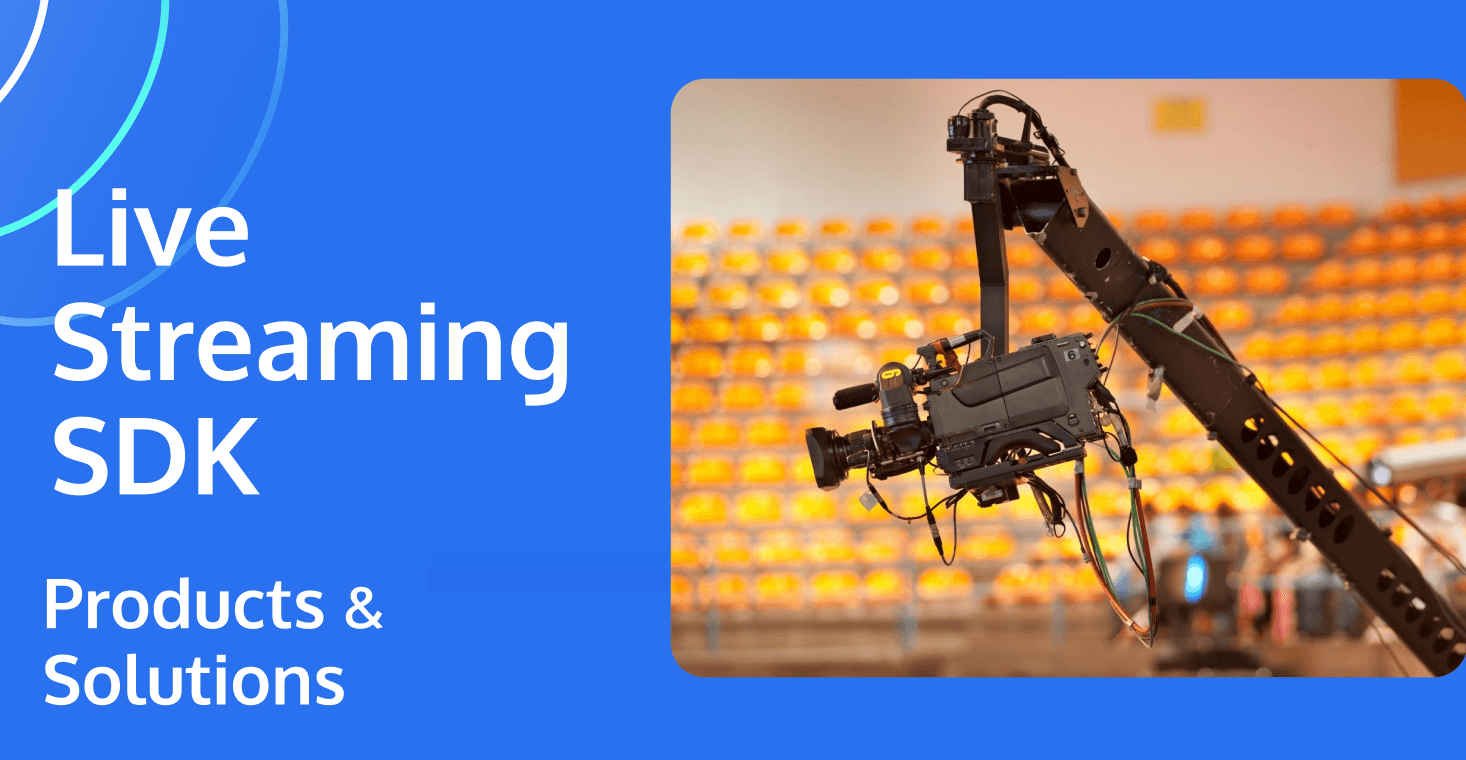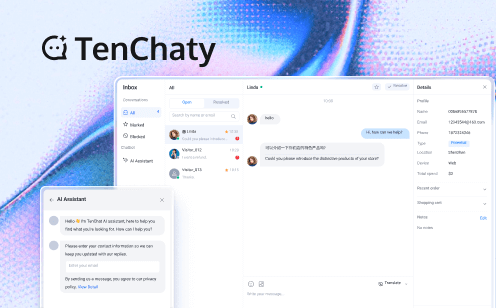Live Streaming SDK: Revolutionizing Sports Broadcasting with Real-Time Technology

Have you ever wished you could bring the electrifying atmosphere of a live sports event directly to your viewers, no matter where they are? In today's digital age, sports fans crave immersive, real-time streaming experiences that make them feel like they're right in the middle of the action. This is where Live Streaming SDK comes into play, transforming the landscape of sports broadcasting with interactive sports content and enhanced fan engagement.
Live Streaming SDK is a powerful tool that enables developers and content creators to integrate high-quality, low-latency live streaming capabilities into their applications and platforms. As the demand for live sports content continues to surge, this technology has become increasingly important, offering new ways to engage fans and monetize sports events.
What is Live Streaming SDK?
Live Streaming SDK, or Software Development Kit, is a collection of software tools, libraries, and documentation that allows developers to easily implement real-time streaming functionality into their sports broadcasting applications. It provides a comprehensive set of features for capturing, encoding, transmitting, and playing live video and audio content, with a focus on low-latency streaming for enhanced sports fan engagement.
Key features and capabilities of Live Streaming SDK include:
- Real-time video and audio encoding
- Low-latency streaming
- Adaptive bitrate streaming
- Multi-platform support (iOS, Android, web)
- Interactive features (live chat, polls, etc.)
At its core, Live Streaming SDK works by capturing raw video and audio data, compressing it using efficient codecs, and transmitting it over the internet using protocols like RTMP or HLS. The SDK handles complex tasks such as network optimization, buffer management, and synchronization, allowing developers to focus on creating engaging user experiences.

Types of Live Streaming SDKs
While there isn't a strict categorization of Live Streaming SDKs, they can be broadly divided based on their primary focus:
- Mobile-focused SDKs: Optimized for iOS and Android platforms, ideal for sports streaming apps.
- Web-based SDKs: Designed for browser-based streaming, perfect for sports websites and online platforms.
- Cross-platform SDKs: Offer support for multiple platforms, ensuring consistent experiences across devices.
- Cloud-based SDKs: Leverage cloud infrastructure for scalable and reliable streaming, suitable for large-scale sports events.
Each type of SDK has its strengths, catering to different use cases in the sports broadcasting industry.
Why Use Live Streaming SDK for Interactive Sports Content
The adoption of Live Streaming SDK in sports broadcasting offers numerous benefits:
- Enhanced viewer experience: Deliver high-quality, low-latency streams that keep fans engaged and connected to the action.
- Scalability: Handle millions of concurrent viewers during major sporting events without compromising quality.
- Cost-effective: Reduce infrastructure costs compared to traditional broadcasting methods.
- Interactivity: Implement features like live chat, polls, and real-time statistics to boost fan engagement.
- Monetization opportunities: Easily integrate advertising, pay-per-view, and subscription models.
Compared to traditional broadcasting methods, Live Streaming SDK provides greater flexibility, reach, and engagement potential. It allows sports organizations to connect directly with their audience, bypassing traditional media gatekeepers and creating new revenue streams.
Popular Applications of Live Streaming SDK in Sports
1. ESPN+
ESPN+ is a premium real-time streaming service that offers a vast array of live sports content, original shows, and exclusive events, leveraging Live Streaming SDK for low-latency broadcasting and interactive sports experiences.It caters to sports enthusiasts by providing access to thousands of live games from major leagues like MLB, NHL, and MLS, as well as niche sports and international competitions. The platform's user-friendly interface allows easy navigation through its extensive library of content, including documentaries, analysis shows, and on-demand replays. ESPN+ leverages advanced streaming technology to deliver high-quality video across various devices, ensuring fans never miss a moment of action. With its affordable pricing and integration with the broader ESPN ecosystem, it has quickly become a go-to destination for sports fans seeking comprehensive coverage.
Features: Live sports events, original content, and on-demand replays
Benefits: Personalized content recommendations, multi-device support
User base: Over 22 million subscribers as of 2022
2. DAZN
DAZN, often called the "Netflix of Sports," is a groundbreaking over-the-top streaming service that has disrupted traditional sports broadcasting. It offers live and on-demand access to a wide range of sports, including boxing, MMA, soccer, and motorsports. DAZN's global approach allows it to secure rights to major sporting events and leagues in different countries, providing a diverse content offering. The platform stands out for its commitment to high-quality streams, often in 1080p resolution, and its no-contract, affordable subscription model. DAZN's apps feature intuitive interfaces, multi-device support, and the ability to watch multiple events simultaneously, catering to the modern sports fan's viewing habits.
Features: Live and on-demand sports streaming, multi-sport coverage
Benefits: Affordable pricing, no long-term contracts
Market presence: Available in over 200 countries
3. NBA League Pass
NBA League Pass is the premier streaming service for basketball fans worldwide. It offers unprecedented access to live NBA games, full game replays, and condensed game recaps. Subscribers can choose between different tiers of service, including options for following a single team or accessing all out-of-market games. The platform's advanced features include multi-game viewing, which allows fans to watch up to four games simultaneously, and the option to switch between home and away broadcast feeds. NBA League Pass also provides access to classic games, statistical overlays, and alternative audio options like player mics. Its mobile-friendly design ensures fans can keep up with the action wherever they are.
Features: Live game streams, full game replays, multi-game viewing
Benefits: Home and away broadcast options, mobile viewing
User engagement: Millions of subscribers worldwide
4. NFL Game Pass
NFL Game Pass is the official streaming service of the National Football League, offering a comprehensive digital experience for football fans. While live regular-season games are subject to regional restrictions, the service provides full replays of all NFL games, including playoffs and the Super Bowl. One of its standout features is the All-22 coaches film, which gives fans a bird's-eye view of the entire field, offering insights into team strategies and player movements. NFL Game Pass also includes access to NFL Network programming, documentaries, and original content. The platform's condensed game feature, which shows full games in about 45 minutes, is perfect for time-constrained fans who want to catch up quickly.
Features: Live out-of-market preseason games, full game replays, condensed games
Benefits: All-22 coaches film, NFL Network live streaming
Global reach: Available in numerous countries outside the US
5. Twitch's Sports Category
Twitch, primarily known for gaming content, has expanded its reach with a dedicated sports category. This section of the platform hosts a variety of sports-related streams, including live commentary on games, sports talk shows, and even broadcasts of niche sports events. What sets Twitch apart is its highly interactive nature, with real-time chat allowing viewers to engage directly with streamers and fellow fans. The platform's monetization features, such as subscriptions and donations, have attracted both amateur commentators and professional athletes to create unique, engaging content. Twitch's sports category has become a hub for community-driven sports discussions, analysis, and alternative viewing experiences, offering a fresh perspective on sports consumption.
Features: Live streams of esports and traditional sports events
Benefits: Interactive chat, easy monetization for streamers
User statistics: Over 140 million monthly active users across all categories
How to Implement Live Streaming SDK
Implementing Live Streaming SDK for interactive sports content and real-time broadcasting involves several key steps:
- Choose the right SDK: Select a SDK that aligns with your platform requirements and scalability needs.
- Set up your development environment: Install necessary tools and dependencies.
- Integrate the SDK: Follow the SDK's documentation to integrate it into your application.
- Configure video and audio settings: Optimize quality and bitrate for sports content.
- Implement interactive features: Add live chat, polls, or other engagement tools.
- Test thoroughly: Ensure smooth performance across different network conditions and devices.
- Deploy and monitor: Launch your streaming service and continuously monitor performance.
Key considerations:
- Ensure low-latency streaming for real-time sports action and enhanced fan engagement
- Implement adaptive bitrate streaming for varying network conditions in sports broadcasting
- Prioritize scalability to handle traffic spikes during popular sports events
For a detailed tutorial, refer to the documentation provided by your chosen SDK provider.
Tencent Cloud's Solution
Tencent RTC offers a cutting-edge Live Streaming SDK, which is specifically designed to meet the diverse needs of sports broadcasters and content creators, focusing on real-time streaming and interactive sports content delivery.
Key features of Tencent RTC include:
- Custom Live Streaming: Provides customizable layout and UI toolkits, allowing broadcasters to go live instantly and viewers to join quickly.
- Ultra-Low Latency Streaming: Delivers sports broadcasts with end-to-end latency under 300ms globally, ensuring smooth real-time interaction between broadcasters and viewers for enhanced sports fan engagement.
- High Interactivity: Supports advanced interactive streaming features such as chat, virtual gifting, and multi-guest participation.
- Global Optimization: Service coverage in 200+ countries, with high compatibility across 20,000+ devices.
- Exceptional Stability: 99.9% service level agreement (SLA) for reliable performance during critical sports events.
Tencent RTC stands out with its unique offerings:
- Multi-guest feature: Allows viewers to request to join as guests, interacting via voice and video.
- Virtual Gifting: Enables viewers to send virtual gifts to broadcasters, displayed as bullet messages or full-screen pop-ups.
- Beauty Filters: Offers beauty enhancement features for broadcasters and guests.
- Audience Engagement Tools: Includes viewer lists and audience tags based on interaction levels.
- Cloud Recording: Allows for easy recording and sharing of live streams.
The SDK is designed for easy integration, requiring just a few lines of code to implement robust live streaming functionality. This simplicity, combined with its powerful features, makes it an attractive option for sports broadcasters looking to enhance their digital offerings.
Tencent RTC has gained trust across various industries, with over 5,000 brands utilizing its RTC technology. Its versatility allows for applications beyond sports, including interactive entertainment, gaming, live shopping, fitness, and education.
The effectiveness of Tencent RTC's streaming solutions is further validated by industry professionals. Kiyota Koichiro, Board Member and General Manager of the eventech Unit, has praised Tencent Cloud's numerous successful cases in real-time distribution and live streaming technology in Japan, reinforcing confidence in their services.
By leveraging Tencent RTC, sports broadcasters can deliver high-quality, interactive streaming experiences that keep fans engaged and coming back for more. Whether it's a major league game or a niche sporting event, Tencent Cloud's solution provides the tools necessary to create immersive, real-time sports content that meets the expectations of today's digital-savvy audience.
Future Trends and Developments
The future of Live Streaming SDK in real-time sports broadcasting looks promising, with several emerging trends enhancing interactive sports content:
- 5G integration: Ultra-fast, low-latency streaming for immersive experiences
- AR/VR capabilities: Enhanced viewing experiences with augmented and virtual reality
- AI-driven personalization: Tailored content and camera angles for individual viewers
- Blockchain integration: Secure ticketing and digital memorabilia for virtual attendees
Challenges include addressing privacy concerns and adapting to evolving regulations. However, the opportunities for innovation and fan engagement are immense.
Conclusion
Live Streaming SDK is revolutionizing sports broadcasting, offering unprecedented opportunities for real-time streaming, interactive sports content, and enhanced fan engagement and monetization. By delivering high-quality, interactive experiences, sports organizations can connect with their audience in ways never before possible. As technology continues to evolve, the potential for innovation in this space is limitless.
We encourage sports broadcasters and developers to explore the possibilities of Live Streaming SDK. Take the first step towards revolutionizing your sports content delivery by trying Tencent Cloud's Live Streaming SDK solution today.
FAQs
Is Live Streaming SDK suitable for real-time streaming of small-scale sports events?
Absolutely! Live Streaming SDK can be scaled to suit events of any size, from local matches to global tournaments.
How does Live Streaming SDK ensure content security?
Many SDKs offer features like DRM integration, secure authentication, and encryption to protect your valuable sports content.
Can Live Streaming SDK handle sudden spikes in viewership?
Yes, modern SDKs are designed to automatically scale resources to handle unexpected surges in viewers, ensuring a smooth experience for all.
What kind of interactive features can be implemented with Live Streaming SDK to enhance sports fan engagement?
Common features include live chat, real-time polls, virtual cheering, and integration with social media platforms.
How does Live Streaming SDK impact data usage for viewers?
Many SDKs implement adaptive bitrate streaming, which optimizes data usage based on the viewer's network conditions while maintaining the best possible quality.
If you have any questions or need assistance online, our support team is always ready to help. Please feel free to Contact us or join us on Telegram or Discord. For technical problems, you can also get help directly from developers on Stack Overflow.


